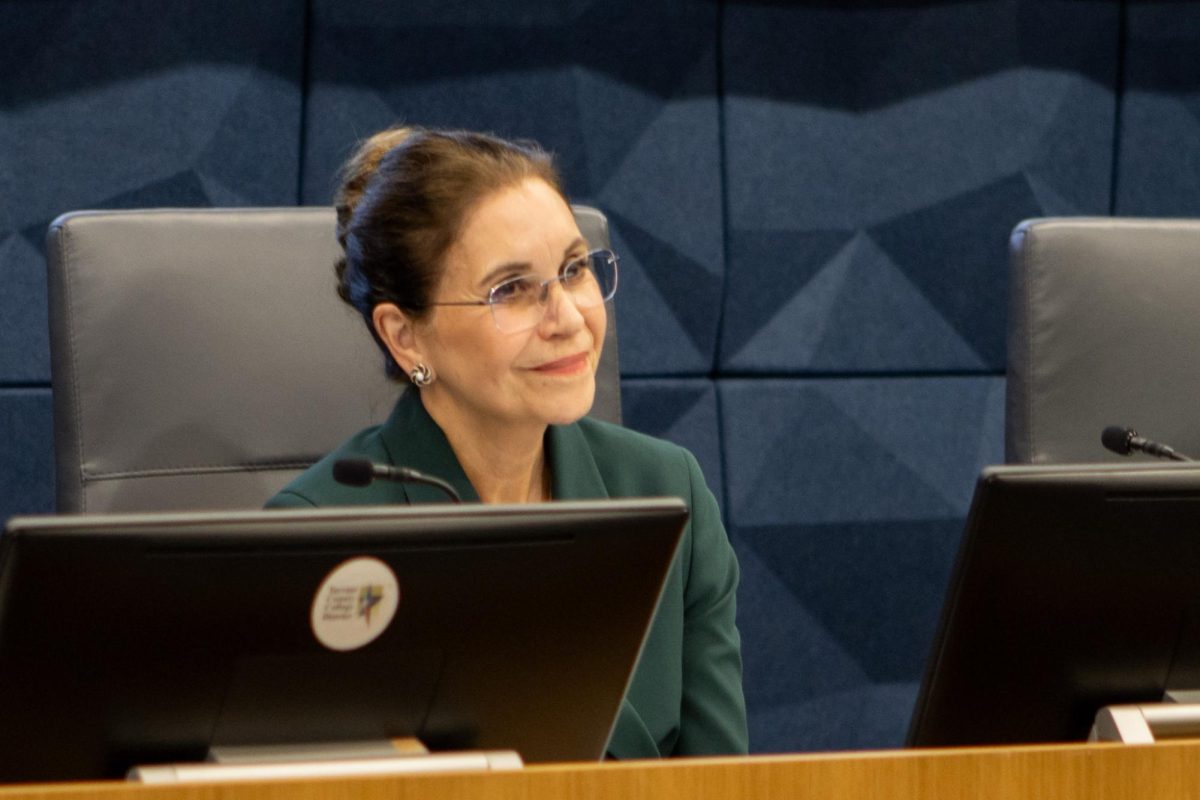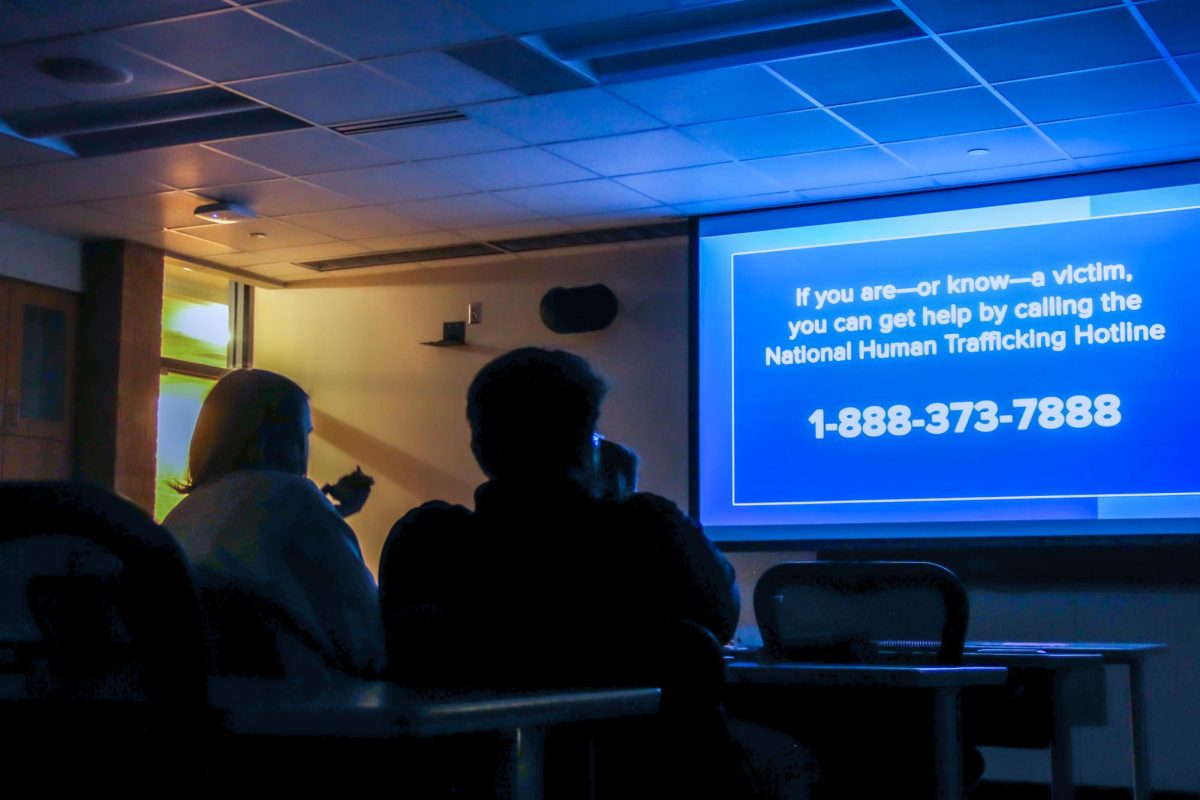By Tina Anders/reporter
With 3.2 million U.S. students enrolled in online classes at the college level, other students begin to wonder if traditional classes are right for them.
According to the recently released Sloan Consortium 2006 report, Making the Grade, at least 800,000 students have enrolled in online classes since the 2005 school year. With 2,200 colleges and universities participating in this latest study, these finding are significant. College level online classes are offered by 55 percent of all two-year and four-year institutions, but does that make them right for every student?
Relaxing at home while doing assignments may seem like a more pleasant school experience, but many online professors agree an online class is possibly more difficult than traditional classes.
Karen Parsons, NE music chairperson, said online classes take more time than traditional ones.
“[Students] need to be self starters, and they really need to log on to the class everyday to see what is new, double check due dates and assignments—in other words, remain on top of things,” she said. “Students need to put in their time. An online class may actually take more time than a face-to-face class.
Parsons said online students need determination to get a degree and a strong will to set and meet the goals that lead to that degree.
Sally Proffitt, NE business department chair, teaches online business classes. She said it takes a certain type of student to thrive with distance learning classes.
“Online students vary in characteristics as in the classroom. I find that a large number of successful online students (completing a large chunk of their major online) are mature and motivated individuals who are balancing family life and careers with their educational pursuits,” she said. “The student most likely to succeed is one that is computer literate, self disciplined in study habits and willing to readily communicate with faculty in multiple modes.”
Kevin Eason, assistant director of distance learning, thinks many students have the wrong view of distance learning classes.
“Courses known to be very difficult on campus will often be as difficult via distance learning. One misconception among college students, though, is that distance learning courses can be easier,” he said.
TCC requires teachers to cover the same material and concepts in on-campus and distance learning classes, Eason said.
Students are often surprised by the rigor of a distance learning class,” he said. “[One] complaint from distance learning students involves their expectation that they should be able to do everything online, from home. Many students do not appreciate, or understand, why they must come to campus to take exams or complete other activities.”
One advantage of distance learning classes is the ability to work ahead (in most classes), giving students time for other classes or obligations. The balancing act of a family, work and school has brought student interest in distance learning to an all-time high, but the understanding is just not there.
Anthony Giardino, South Campus assistant professor, teaches online government classes and sees this problem among his distance learning students.
“They should know to expect at least the same amount of work and time commitment that is required from a regular course,” he said. “Nearly all of my successful distance learning students report spending about 12 hours a week on my course. Unfortunately, some students sign up for distance learning courses thinking it will save them time. It doesn’t.”
Online courses let students set their own time schedule, Giardino said, but the commitment and work are still required.
“My distance learning students do more writing and outside projects than my lecture students do. My distance learning courses contain a lot of active learning assignments and require at least as much time,” he said. “My philosophy of distance learning is that it must be the exact equivalent of the regular course. If I did not believe the students are learning as much as they would in a regular course, I wouldn’t teach distance learning courses.”
Online students also agree that those courses require more discipline than traditional ones.
Amanda Schwertner, a NE Campus student, said she enjoys her distance learning classes, but her husband had trouble with them.
“Talk to the professors before registering for classes. Ask them questions,” she said. “That way you can decide if you think a regular class would be better than an online class.”
Schwertner said students must be committed to the online class.
“Just because you don’t have a class twice a week doesn’t mean that you shouldn’t spend the same amount of time online,” she said. “If you can do it yourself, then distance learning classes are great for you. If you need hands-on and one-on-one with the teacher, then a traditional class might be better for you.”
Anne Rabourn, a NE student, says new distance learning students should be able to study on their own, so distance learning classes are not for everyone.
“I would advise a new TCC student to keep on top of the assignments, meet or beat the assignment dates, use the study information given for the test, read the chapters and take advantage of any extra credit work,” she said.
Judi Maulsby, a NW Campus student, agreed that distance learning classes are harder than traditional and offered advice for new students.
“In the first few days of class, get familiar with the Web site. Open every window and look at everything,” she said.
“That way it doesn’t seem so intimidating. Also check Webmail everyday for any instructions.”
Stacy King, from South Campus, had a different outlook on distance learning.
“Traditional classes have their advantages for certain subjects, like math and science, where it’s helpful to have direct interaction with the instructor,” she said. “For book-learning classes, though, such as history, literature, government, I’ve found distance learning classes work better for me. I can read and study at my own pace.”
King said the work is neither harder or easier, just different.
“I have to have my act together enough to stay on top of reading and assignments since I’m not seeing an instructor every other day to remind me,” she said. “That in itself is often tough to do.”
King also addressed the challenges of distance learning.
“Expect to work just as hard as if you were sitting in class every week. Do the required reading before the study session, if any, and attend the seminars, if any,” she said. “Distance learning classes aren’t ‘skate’ classes. As with any class, if you want a good grade, you’ve got to earn it.”
The consensus for distance learning classes is that students need to have and maintain self-discipline throughout the course and not need someone to push them for every assignment. Distance learning classes are designed to give students the flexibility for managing a busy life while earning an education. However, they are not designed for students to have easier classes or less of a work load than traditional students.
Those interviewed agreed distance learning classes should not be jumped into blindly without the commitment required. If there is a misconception or just a lack of will to do the work required, grades and financial aid money could suffer.
Financial aid allots only so much per student, so all dropped and failed classes take away from the money the student can receive.






















